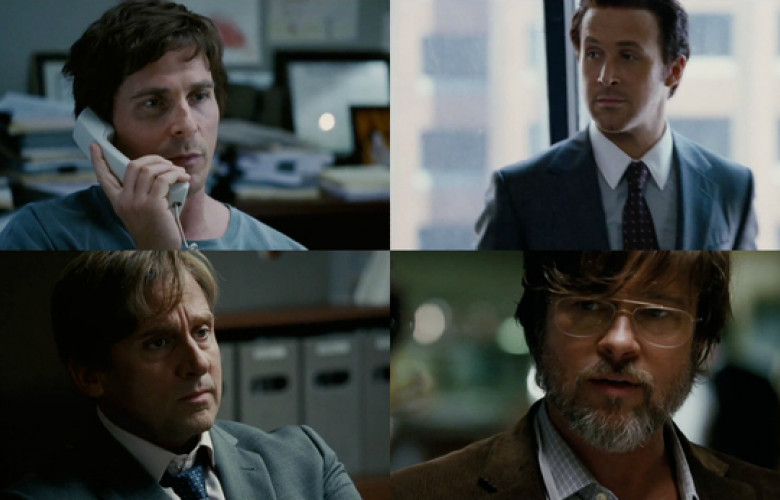'The Big Short' is Hollywood’s latest offering about the GFC
Contact
'The Big Short' is Hollywood’s latest offering about the GFC
For the mere mortals in the audience, there are lessons for our own property investing.
'The Big Short’ is about a small group of investors who predicted the 2007 US housing market crash, and worked out how to profit from it.
Michael Burry (played by Christian Bale) is an awkward hedge-fund manager who dissects a mountain of data, and comes to the conclusion a collapse in the US housing market is imminent. He devises a way to profit from the fall. Trader Jared Vennet (Ryan Gosling) hears about Burry’s investment, and persuades Mark Baum (Steve Carell) to get on board. A couple of young investors Charlie Geller (John Magaro) and Jamie Shipley (Finn Wittrock) also want to trade on a fall in the housing market, and eventually do so with the help of retired trader, Ben Rickert (Brad Pitt).
The movie begins with a Mark Twain quote. “It ain’t what you don’t know that gets you in trouble. It’s what you know for sure that just ain’t so.”
And for the brainy investors in this movie, what they 'knew for sure wasn’t so' made them a lot of money.
The film takes you on an exciting ride. The star-studded cast is excellent. We experience the investors' tension wanting the housing market will collapse, but knowing the crash will have catastrophic consequences for millions of Americans. The film’s wry humour balances out the anxiety.
Even explanations of the financial jargon are fun. The film’s main stars occasionally explain things directly to the audience, creating a jolt of intimacy. Direct-to-camera explanations from Selina Gomez at the blackjack table, Margot Robbie in a bubble bath, and Anthony Bourdain in the kitchen bring technical language to life.
We find ourselves wishing for the housing market to collapse, even though we know the terrible consequences. The tension is palpable.
But the tone of the film switches from tension to anger as the housing collapse unfolds. The film asserts that the markets weren’t only flawed, they were corrupt, and at this point the film loses some of its power. The participants might have been simple-minded and unethical. But they weren’t necessarily evil, as borne out by the lack of convictions following the GFC.
By the film’s conclusion, the anger has ratcheted up to fury. But there’s little merit in the film’s claims that Wall St didn’t suffer as a consequence of the GFC, and was complicit in stalling reform.
Wall Street did suffer. Lehman Brothers collapsed. Fannie Mae and Freddie Mac, the US mortgage giants, were taken over by the government. A number of large banks were taken over by competitors. Dodd-Frank legislation, and new global regulations, were direct responses to the GFC, and have made property and financial markets safer.
Vennet says, “Eight million American lost their job. Six million lost their homes.” But since then, 14 million people have found new jobs, and the housing market has recovered.
The closest most of us will get to the high-finance action of ‘The Big Short’ is buying our own home. Just as the canny investors in the film used ‘what they knew’ to make millions, we should also stick to ‘what we know’ when buying property.
The film reminds us that housing moves in cycles, and in the wake of a year of record price growth, ordinary investors should be reminded that markets can go down.
But we can be comfortable in our knowledge that Australia’s housing and banking markets are well regulated, because we escaped relatively unscathed from the GFC. The US economy is safer in the wake of post-GFC reforms, so we, in Australia, benefit from greater global economic stability.
'What we know' about our own finances is also key. We must know how much we can afford, and if we can still pay our mortgage if interest rates go up.
We may not be able to time the market like the gang on Wall Street, but if we buy property using 'what we know', and manage to hold onto it for a decade or so, most of us will feel we’re doing alright.
By Caroline Egan





